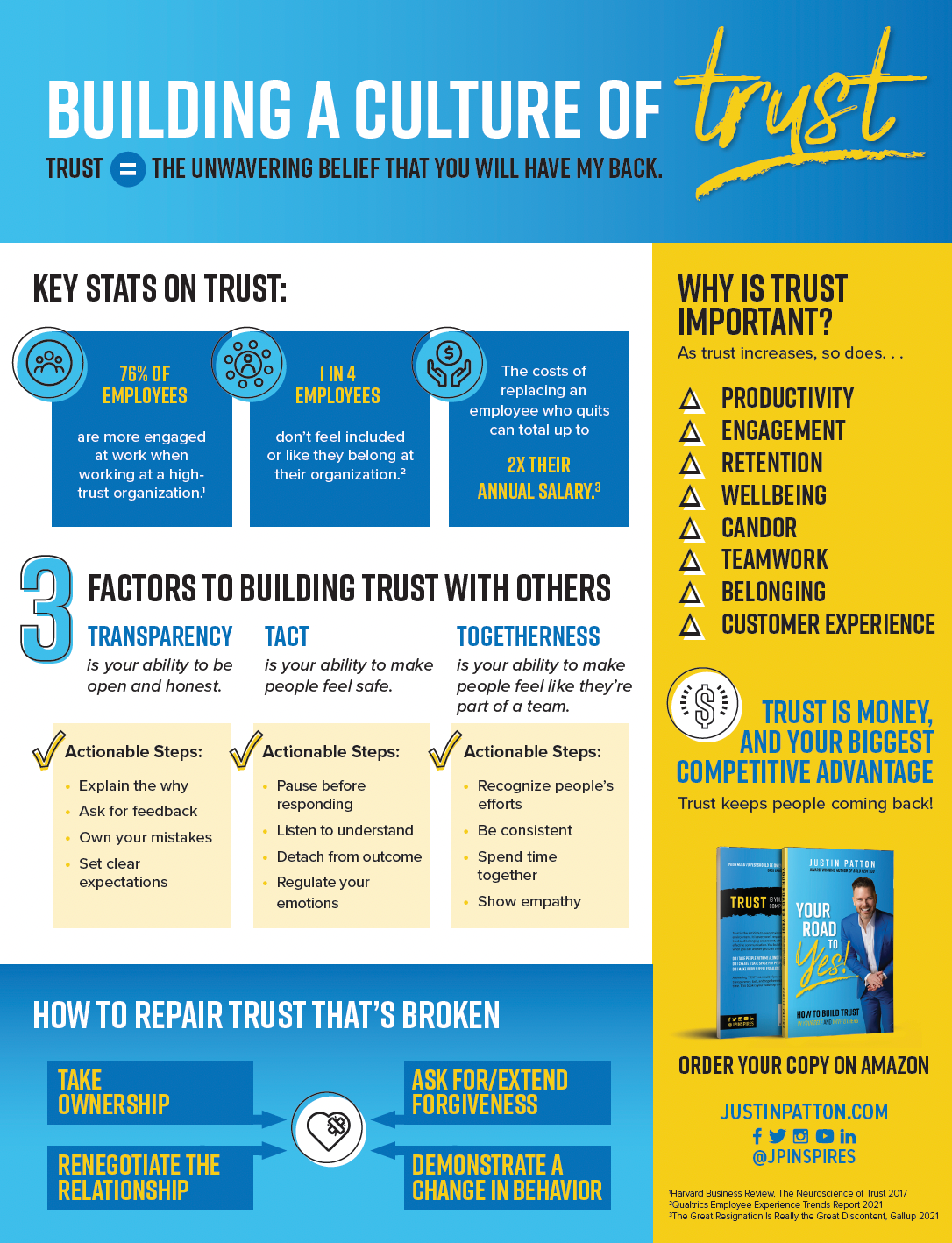Most new managers don’t lose trust because they lie or don’t have the smarts to do the job. They lose it because they’re more focused on getting the job done than on how it gets done. Building trust as a manager isn’t about perfection, it’s about consistency.
They were promoted for being great at their job, not for knowing how to guide people. Suddenly they’re managing former peers, navigating hard conversations, and trying to prove themselves in every meeting.
It’s overwhelming. True leadership and trust are earned through how you show up and how you treat people, not the title you hold.
That’s the foundation of trust in leadership.

Click on the graphic to download tips on building trust with yourself and others
How New Managers Build Trust That Lasts
When you step into leadership, your technical skills matter, but they’re not what make people follow you. How to build trust as a new leader begins with your presence. You can’t outsmart your way into trust. You have to earn it through how you show up.
From day one, your team is watching your every move.
They’re studying your tone in meetings.
They’re noticing if you listen when they talk.
They’re deciding if your word means something.
Your presence is a promise, a silent signal that tells people whether they can count on you. And if there’s one thing people crave from a new leader, it’s consistency. They don’t need you to be perfect. They need to know which version of you is showing up today.
So, let’s talk about the micro moves that actually build trust.
1. Manage the glimpses.
Every interaction gives people a glimpse of your values. How you act under pressure. How you handle being wrong. How you talk about others when they’re not in the room. These glimpses are data. They tell your team whether you’re someone they can trust.
The truth? You’re always on stage, not because you have to perform, but because leadership magnifies every moment. Your facial expression in a meeting. Your reaction to bad news. Your silence when someone shares an idea. It all teaches people how safe it is to be around you.
The goal isn’t to fake it. It’s to align your actions with your intention. Be the same person whether the lights are on or off. Because consistency is credibility.
2. Say the thing.
Most new leaders confuse being nice with being kind.
Niceness avoids discomfort.
Kindness leans into truth.
People can’t fix what you won’t talk about. And when you avoid giving feedback, you don’t protect their feelings, you protect your own comfort.
A Gallup study found that employees who receive regular, meaningful feedback are three times more engaged at work. Why? Because feedback shows investment. It says, “I see you. I believe you’re capable of more.”
If someone’s struggling, don’t dance around it. Pull them aside and say, “I care about you and your success, and here’s what I’m noticing.” That combination of care and candor builds trust faster than pretending everything’s fine.
So, say the thing. Even if your voice shakes.
3. Find the good.
Recognition is oxygen. Without it, people suffocate in silence.
The Society for Human Resource Management found that 79% of employees quit because they don’t feel appreciated. That’s not a work ethic problem. That’s a leadership problem.
New managers often assume recognition has to be grand. It doesn’t. “Hey, I noticed how calm you stayed with that customer” or “You handled that project like a pro” goes further than you think. Recognition is one of the easiest trust deposits you can make.
And it’s contagious. The more you call out what’s right, the more your team looks for what’s right in each other.
Find the good. Name it out loud. Let people feel seen.
4. Set people up to win.
Nothing breaks trust faster than setting expectations people can’t meet.
If your team doesn’t have the tools, knowledge, or support to deliver, that’s not their failure. It’s yours. Clarity is kindness. Confusion is cruelty.
Before you assign the next project, ask yourself:
Have I been clear about what success looks like?
Do they have what they need to get there?
Have I checked in along the way?
People rise to the level of trust you place in them. Equip them. Coach them. Remove the barriers in their way. Because every time you help someone win, you build the kind of loyalty no paycheck can buy.
5. Make daily trust deposits.
Trust isn’t built in grand gestures. It’s built in quiet, consistent moments: the check-in, the follow-up, the “How are you, really?”
Every interaction is a deposit or withdrawal in your trust account. The leaders who win the long game are the ones who keep their account full.
You don’t need a leadership retreat to start. You just need small, intentional acts.
Try my 28-Day Trust Deposit Challenge to see how daily gestures can transform your relationships.
Trust lives in the next move, the one you make right after this sentence.
6. Remember: Trust is a team sport.
Trust doesn’t live in one direction. Every person on your team plays a part in it. The way you show up teaches them how to show up for each other.
When you take accountability, they learn accountability.
When you keep your word, they keep theirs.
When you handle mistakes with grace, they do too.
The team you lead will mirror your energy. So lead like someone worth mirroring.
Your shift: From proving yourself to serving others.
Early leadership often becomes a race to prove you belong. But people don’t follow leaders who are trying to prove themselves. They follow leaders who are trying to serve them.
You don’t have to have all the answers. You just have to be someone others can turn toward, especially when things get hard. That’s the kind of trust that outlasts any promotion.
So before your next meeting, email, or tough conversation, pause and ask yourself:
“What choice would I make if I were focused on building trust?”
That answer will always serve you well.
Trust isn’t about the title you hold.
It’s about the trust you build, one move, one moment, one conversation at a time.
Check out Managers Who Build Trust
And if you’re ready to make trust your biggest competitive advantage, check out my newest book, Managers Who Build Trust, your playbook for bringing out the best in your team.

Watch Justin in ACtion
Justin Patton is a trust keynote speaker, leadership coach, and founder of The Trust Architect Group. Through his trademark motto Trust Starts Here™, Justin helps leaders build trust in themselves, with others, and across their culture — so they keep people coming back for more. Learn more at justinpatton.com.

